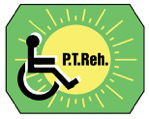


|
Current issue
Archive
Manuscripts accepted
About the journal
Editorial board
Reviewers
Abstracting and indexing
Contact
Instructions for authors
Publication charge
Ethical standards and procedures
Editorial System
Submit your Manuscript
|
2/2025
vol. 39 abstract:
Review article
Non-pharmacological interventions targeting working memory in mild cognitive impairment: a systematic review and meta-analysis
Seyed Mohammad Saeid Sahaf
1, 2
,
Zanireh Salimi
3
,
Reza Bidaki
4
Adv Rehab. 2025. 39(2): 46-62
Online publish date: 2025/04/08
View
full text
Get citation
ENW EndNote
BIB JabRef, Mendeley
RIS Papers, Reference Manager, RefWorks, Zotero
AMA
APA
Chicago
Harvard
MLA
Vancouver
Working memory (WM) plays a critical role of in cognitive functioning and and has predictive value for daily activities. The aim of the study was to evaluate the effects of non-pharmacological cognitive interventions on WM in individuals with mild cognitive impairment (MCI); it includes a meta-analysis aimed at evaluating the effectiveness of various interventions intended to enhance WM in MCI patients.
A systematic search was conducted of PubMed, Scopus, Google Scholar, ScienceDirect, and SID for papers published before March 2024. The corpus included randomized controlled trials assessing non-pharmacological cognitive interventions on working memory in MCI. Effect sizes were calculated using the standardized mean difference (Hedges' g), and heterogeneity was assessed using the I² statistic with comprehensive meta-analysis software (CMA2). Of 1,509 identified studies, 27 met the inclusion criteria, and seven were eligible for meta-analysis. It was found that cognitive interventions, particularly digital-based programs, yielded significant improvements in working memory. The effect size was moderate (0.456, p < 0.05) with low to moderate heterogeneity (I² = 35%). Risk of bias was generally low, supporting the reliability of findings. Cognitive interventions show significant potential in enhancing WM among individuals with MCI. Our meta-analysis reveals a moderate effect size, supporting the efficacy of non-pharmacological approaches. Cognitive interventions may serve as a valuable tool for delaying cognitive decline. Future research should investigate optimal intervention strategies and long-term effects to maximize cognitive benefits. keywords:
cognitive intervention, digit span test, mild cognitive impairment |
    |